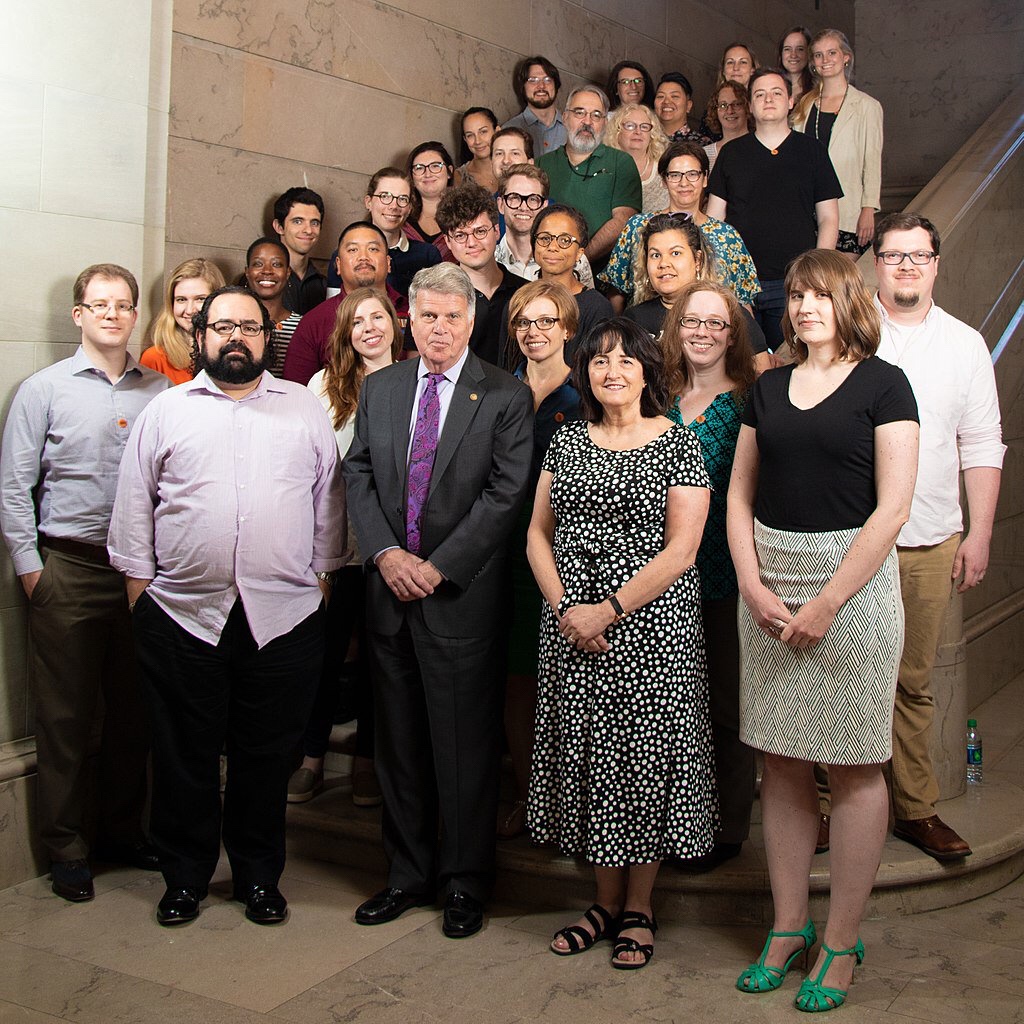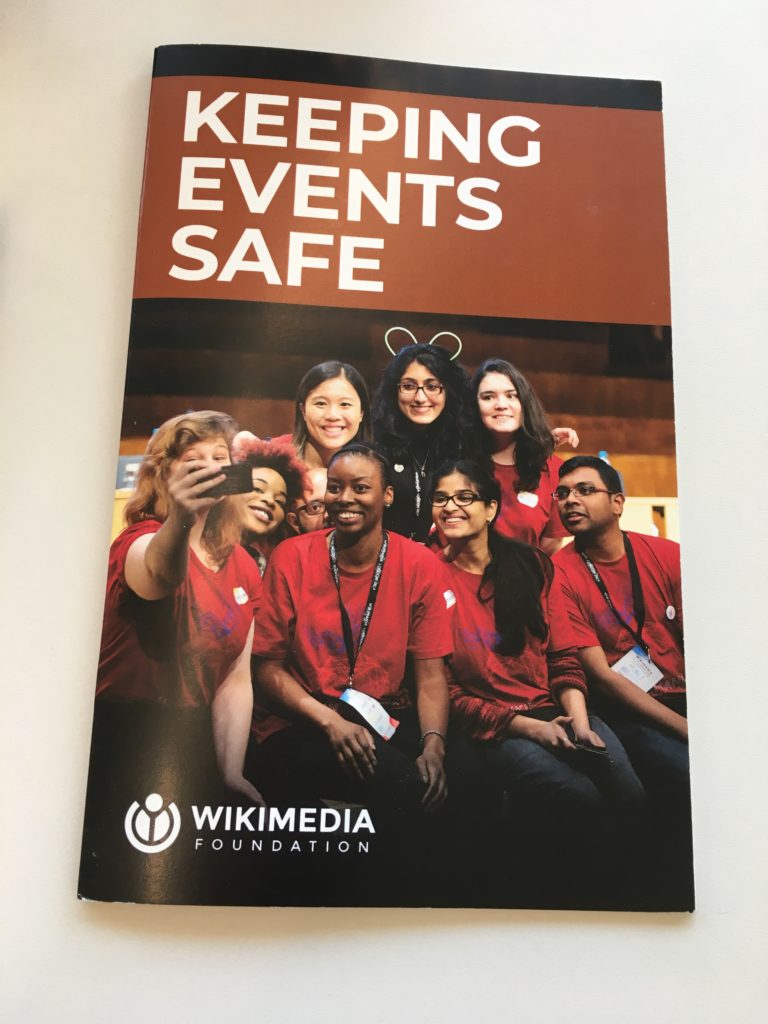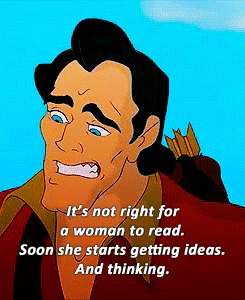
The email caused me a cacophony of emotions. I deal with imposter syndrome (a lot) and I have been rebuilding myself after post-PhD depression. I don’t recognize my accomplishments, and still doubt my knowledge and skills. Getting invited to this Bootcamp surprised me, but validates that what I am doing is good and impactful. I have traveled to San Francisco, Wikimania, Wikimedia Diversity Conference, and Wikipedia Day with Wikimedia NYC. I have done a lot of good in the past year, but it’s hard to remember that when you’re not receiving a paycheck for that work. For the better part of a decade, I have been working “for the greater good” and constantly have to remind myself of my own value. It’s invitations and recognition like this Bootcamp that help me with that process.

A few months after the invitation email, I booked my flight, confirmed my hotel, and I was on my way to Washington D.C. I was so excited because I have never been before. I booked my flights so I could have a few hours before the Bootcamp and after so I could wander around town. I decided to visit the National Museum of American History on the day I arrived. There was no way I could possibly do everything I have on my bucket list and I now find out fall is the time to go – no crowds! I’ll certainly have to plan a follow-up trip.
Now, let’s talk about the Bootcamp itself. First of all, the event taking place in the National Archives was enough to get me there. I was totally geeking out and really wish we had time for an edit party (my new, accessible term for edit-a-thon). The smell of books intoxicated me. Knowing uncounted volumes of information exchange occur because of this institution, it was really overwhelming. If you have a chance to visit and just ask questions, do. The people in these knowledge institutions are the lifeblood of the free knowledge movement. They want to share the information and help people develop meaningful connections with their endless treasure trove.
Everyone at the National Archives was completely accessible, and David Ferriero, Archivist of the United States, spoke to us to tell his story about information sharing and Wikipedia. He is the first librarian to serve as the Archivist of the United States and is doing incredible work to connect the community with content.
The rest of the schedule for day one was packed with keynotes about engaging with community, developing partnerships, safe spaces, and a crash course in Wikidata. Kelly Doyle started the day talking about engaging new audiences. She asked us to think about what we share with the users. She suggested asking questions like, “What can I provide the user?”, “What can the user provide?”, and “What is in it for the user?” These questions will help frame the program development and help enhance the possible effectiveness of the programs. This makes total sense as we need to help the community members identify with the Wikipedia movement in their own ways. Their connections and reasons for participating will all be different, but we need to make them all feel welcome and valued.
Next Ariel Cetrone from WMDC talked about partnerships. Some key pieces that stuck with me were questions she asks herself when developing new partnerships. The major question was, “How would I have liked to have learned about Wikipedia?” This is huge. We all know there are barriers and challenges to finding the information and getting involved on Wikipedia. I know there are some things I would have like to have learned differently. In some ways, getting started on Wikipedia is like water rushing down a hill: you can’t control where it goes and it’s a continuous flow. To the people working to make this process easier and who work with new contributors each day, you’re amazing and keep doing it!

The next session that really stuck with was Sydney Poore talking about Safe Spaces. I have long reflected on harassment and how bias, social dynamics and gender perception play into interactions in online communities and at in-person events with the people from the online communities. For policies aimed at addressing issues related to harassment, the Wikimedia community uses “friendly spaces” and “safe spaces” synonymously. These phrases have 2 very different meanings to me. I discussed this with another Bootcamp attendee, and they agreed.
A friendly spaces policy would be one to make spaces welcoming. This would be one addressing microaggressions and encouraging active listening. Most people are unaware of how their behavior impacts others and how it might be offensive to others. One example is when men interrupt and talk over women. Unless called out, they might not recognize it. Sadly, it is still socially accepted when a man interrupts or speaks over a woman because it is such a common practice. Friendly spaces would educate attendees about some common behaviors to bring awareness through education, and help create the friendly spaces this movement needs in order to meaningfully close gaps. For now, even though the friendly spaces policy exists, it only serves the purpose of a safe spaces policy. I look forward to a future truly friendly spaces policy.
For a safe spaces policy, this would be one addressing harassment and violence. There is a lot to be said about harassment, so I will just say this: I look forward to the development of tools and practices from the Wikimedia Foundation to address harassment in the community. This is not something we can expect volunteers to handle. Harassment is unacceptable and needs to be made so in the community.
After that heavy conversation, we left for dinner and drinks. Of course, we had to go to the place with a huge barnstar, Hill Country BBQ. Not the most vegetarian friendly menu, so I stuck with the macaroni and cheese and figured I’d grab some fruit and veg from the market later. I ended up grabbing drinks with friends instead. It was a better choice!
On to the second day of the Bootcamp! We talked a lot about community. There was much said about tools to make contributing easier, and ways to change thinking about contribution. Rosie Stephenson-Goodknight spoke about how she started editing after her son attended an edit-a-thon (read: edit party). She emphasized how important providing a positive experience is at events. It is not about the number of edits or new accounts created, but community developed.
We also discussed the value of contribution. Much of the measurement of success in the Wikimedia movement is considered in quantitative measures. I have a problem with this because one cannot measure all things in numbers. One cannot measure the impact an event had on a person by the presence of their body. Nor can one measure the impact an edit party had on a person’s information literacy skills. These “softer” benefits cannot be measured in numbers: number of people, number of edits, number of articles created.
Many of us at the Bootcamp complained about the focus on quantitative measure in grant funding. Simply some of the great work we are doing cannot be plotted on a graph, but the lack of quantitative metrics does not mean it has no value. We need to change the thinking in the Wikimedia movement away from impact measured in numbers to impact measured in value.
Following the community discussion, we presented our lightning talks. The lightning talks were another amazing part of the day. I was just completely overwhelmed by the amazing work my fellow Bootcamp attendees were doing. I was in awe and so inspired. I sincerely wish them well in their work, because it is all so very important. Later I plan to write a post about my lightning talk topic: my open relationship.
After the weekend was over, we discussed what could have changed or stayed the same. Our one biggest complaint was not having enough time together. Many of us, if not all, decided to start a group so we could stay connected and continue our growth. I suggested this Wiki Leadership Bootcamp turn into a year-long cohort where we meet in-person one time, but we could each take turns hosting video chats the rest of the year. There were so many things we wanted to know and learn from each other. This perhaps would allow the time and space for that to happen. Thank you again to the organizers of the Wiki Leadership Bootcamp, WMDC and the National Archives for making this happen. I have some new collaborations and projects to move forward on, and am excited to see what happens with future Bootcamps.
